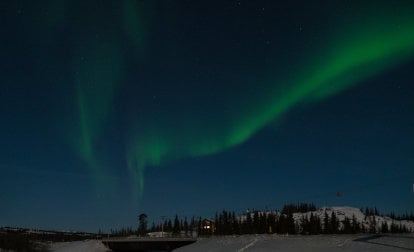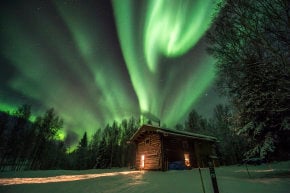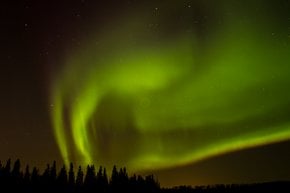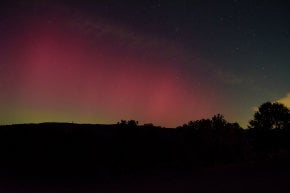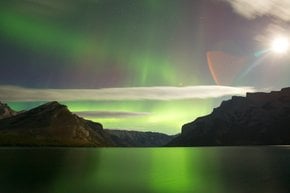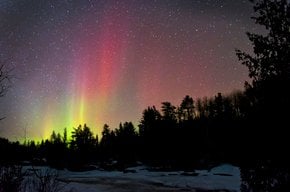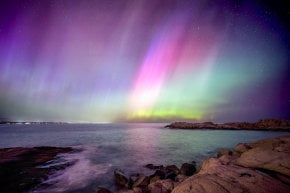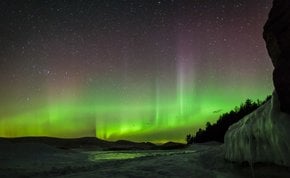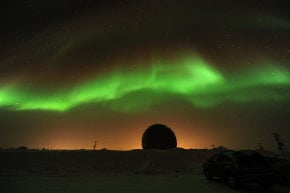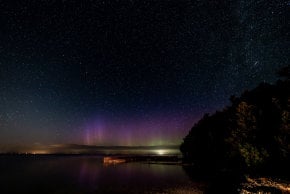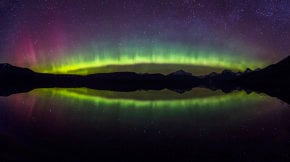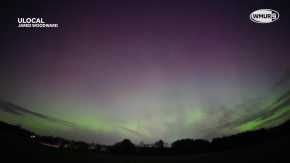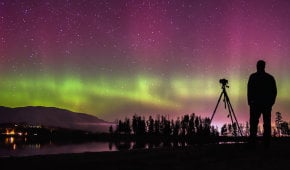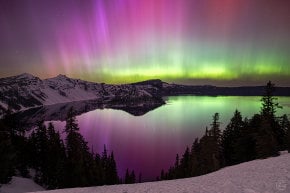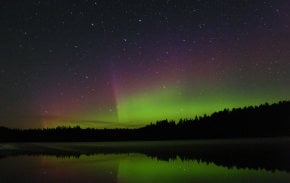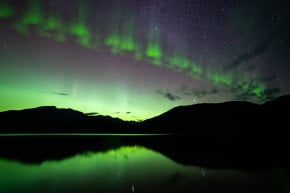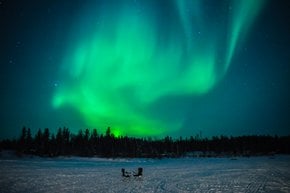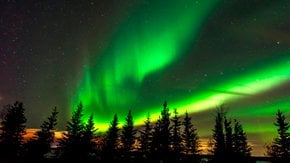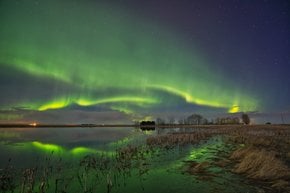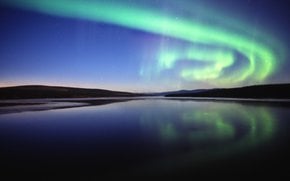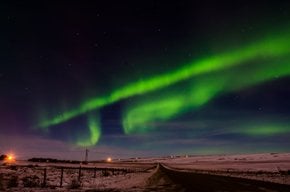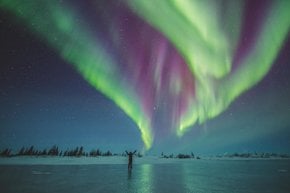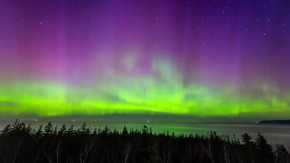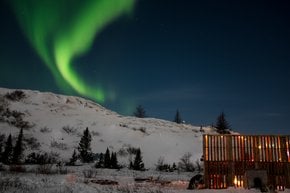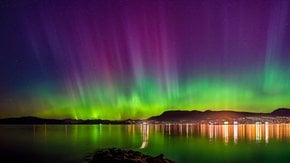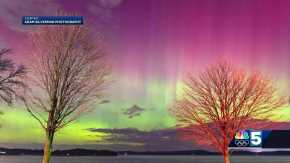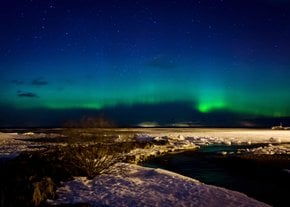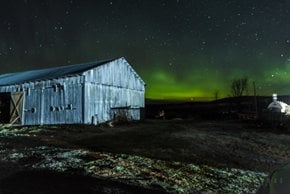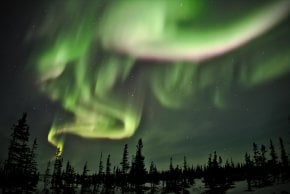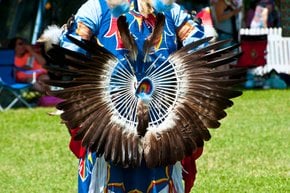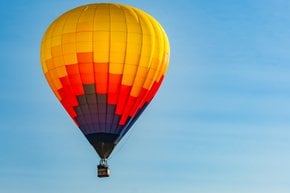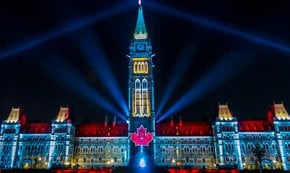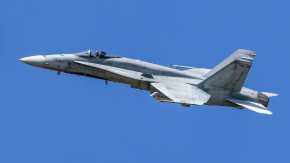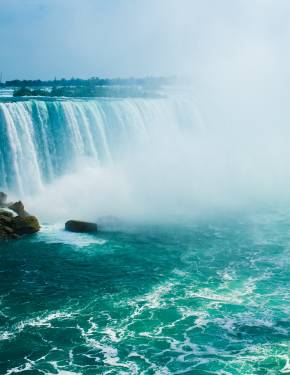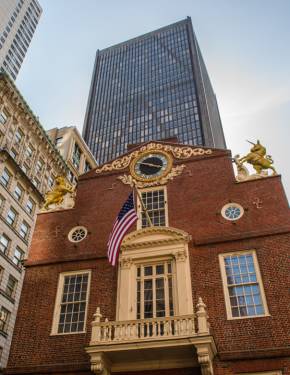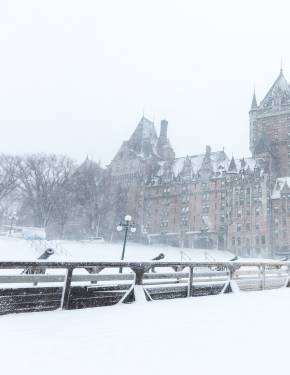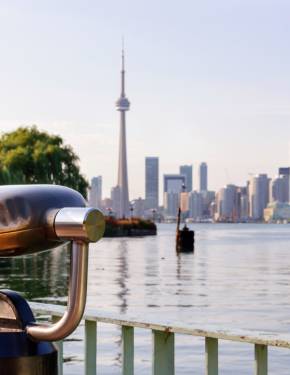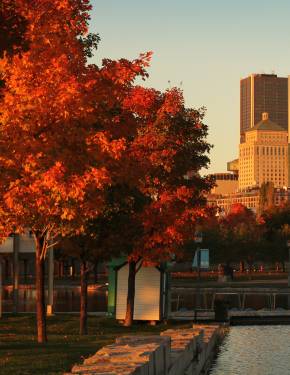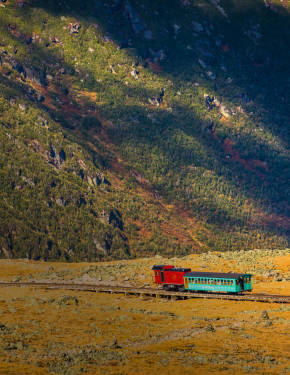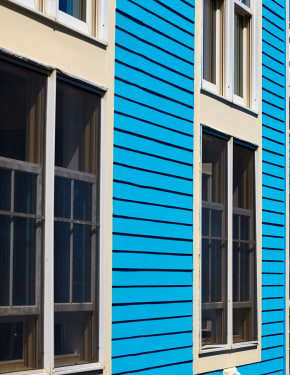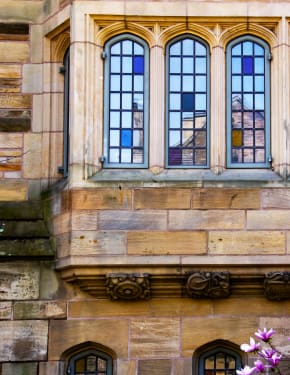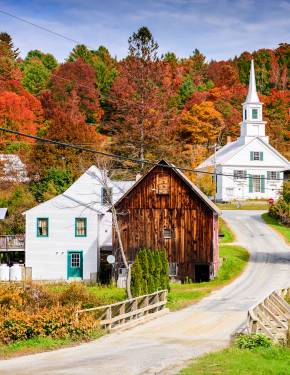Northern Lights in Canada, Ottawa 2025-2026
As one of the northernmost countries in North America, Canada offers stunning views of aurora borealis
Best time: September–May (varies between regions)
Canada has long been known as the prime destination for northern lights among aurora chasers. From the mountainous terrain of Yukon to the open grasslands and tundras of Manitoba, the country offers many opportunities to experience this celestial event. The sky above some regions lights up with aurora borealis approximately 240 nights a year.
Aurora Forecast
To ensure their chances of seeing aurora borealis, many aurora chasers turn to space weather forecasts, published and regularly updated by trusted scientific institutions. Space Weather Prediction Center and Geophysical Institute at Alaska, Fairbanks, are some of the leading sources in this area.
Most of the forecasts rely on a Kp-index scale, which measures solar and geomagnetic activity from 0 to 9. These solar storms cause disturbances of the Earth's magnetic field, leading to northern lights appearing. The visibility of auroras varies between regions, with northern Canada experiencing visible northern lights at lower levels, at 1-3, while Ontario residents need to wait until solar activity reaches 4-6.
Best Time to See Northern Lights in Canada
Home to ten provinces and three territories, Canada doesn't have a uniform aurora borealis season, with peak time varying between regions. However, coming during the darker months of winter and up until early spring is your best bet—aurora is more likely to be visible with early nights and dark skies. In the Yukon territory and Northwest Territories, northern lights appear from November until March or early April, while in Alberta, they're visible as early as September and until May.
Best Places to See Aurora Borealis in Canada
Canada boasts a wide range of locations, perfect for aurora sightseeing, no matter where you go. In Yukon, consider visiting Klondike Valley and Whitehorse, situated near mountain peaks. The town of Churchill in Manitoba lights up with northern lights throughout most of the year, while neighboring Saskatchewan welcomes aurora chasers up north. Consider visiting Banff & Jasper National Park in Alberta from September until April for stunning nature walks and aurora sightings. British Columbia, Vancouver in particular, requires some patience and luck to see auroras. The southerly province of Ontario might surprise with stunning northern lights display during winter in one of its nature reserves. Boasting tundras and low levels of light pollution, the northernmost territory of Nunavut provides perfect conditions for aurora viewing.
Northern Lights in Nunavut
A sparsely populated territory, Nunavut is situated in the far north of Canada and enjoys stunning aurora borealis displays from October until April. To witness aurora borealis, it's best to check the aurora forecast beforehand, but northern lights in Nunavut can be seen at 1 or 2 points of the Kp-index. The capital of Nunavut, Iqaluit, is located above the Arctic Circle, and even though it carries the title of the capital, it has little to no light pollution.
Some of the top spots for aurora viewing in Nunavut include Baker Lake, the Apex Rotary Park, and Sylvia Grinnell Territorial Park. Baker Lake hamlet is located on the mouth of Thelon River, on the shore of Baker Lake, and prides itself in being a major arts community. Apex Rotary Park can be found in the capital of Iqaluit and offers spectacular views above the lake. Sylvia Grinnell Territorial Park, also known as Iqaluit Kuunga Park, is also located in Iqaluit and is one of the most popular parks in Nunavut.
Visitor Reviews
Rove.me reached out to travelers who previously explored Canada and Nunavut in particular and had a chance to witness northern lights there. Our main goal was to hear their general thoughts about their experiences, the visibility of aurora borealis, and the difficulties of their journey. We also asked whether they would recommend the experience to others.
Rachel Taylor from Atlantic Canada, who spent one year in Nunavut, working as a teacher, said, "The northern lights dancing in the sky was always special to experience. I could usually see them on my walk home from work since it gets dark early in the winter months. Their visibility varied depending on how clear the sky was that night, and some nights, they were brighter than others."
She also explained that sometimes, the lights were hard to spot with your eyes and looked like a grey cloud. "But if you take a picture, it would show up through a camera with bright green colors," Rachel continued. "I only lived in one area of Nunavut, but I've heard that, depending on where you visit, they can look different." When it comes to the community of Nunavut, she found the locals to be extremely welcoming to newcomers. Rachel was able to experience dog sledding and hunting because of their kindness and willingness to share their culture with her.
Another traveler, Alice Buttet-Allard from Québec, Canada, was able to witness northern lights both in Iceland and Nunavut, "I have seen a lot of northern lights in Nunavut, but most of the time, they are not super visible by the naked eye, only with the camera. I feel like those I have seen in Iceland were stronger and brighter than Nunavut." She mentioned that it was quite rare to see a very bright purple aurora in Nunavut. Despite this, Alice finds the experience quite special, "But because it's so rare when you see it, it feels very special. I spent three winters up north, and every time, the feeling is the same!"
Both Alice and Rachel noted that the weather in Nunavut could dampen your aurora-viewing experience. "The weather can be very harsh, so you want to make sure you are prepared with the right clothing and equipment for your comfort as well as safety," said Rachel. Alice mentioned that temperatures in Nunavut can drop below -68°F (-55°C) in winter. Despite the harsh weather, Rachel encourages others to explore Nunavut, "I absolutely recommend everyone to visit Nunavut at some point in their lives. The land is so rich in culture and traditions, which you don’t get to see in other parts of Canada."
Practical info
External resources
- National Geographic I Northern Lights in Canada (Official website)
- Space Weather Prediction Center (Official website)
- Geophysical Institute at Alaska, Fairbanks (Official website)
- Northern Lights in Nunavut (Official website)
- Baker Lake, Nunavut (Official website)
- Sylvia Grinnell Territorial Park (Official website)

